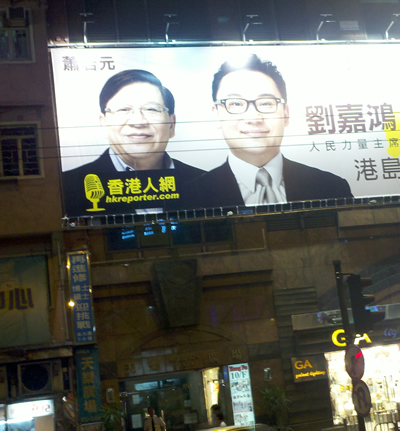I am still in Hong Kong, just days after the city’s huge annual demonstration commemorating the handover of the city to the People’s Republic of China. Politically, Hong Kong is a 7 million person town in turmoil. Its newly elected chief administrator, Leung Chun-ying, already faces charges that he lied about illegal structures in his luxury home. Rival politicians have called for him to resign. Leung had to flee a community meeting yesterday, when angry district residents pressed him on this and other issues.
Much of this turbulence plays itself out over the radio. Yesterday the city’s top education administrator probably failed a crucial test in the eyes of many Hong Kong residents. During a radio interview, Eddie Ng claimed that he cried during the military suppression of students on June 4, 1989 in and near Tiananmen Square, but refused to condemn the PRC’s actions. “Students should have freedom of expression, but it [the protests] led to unfortunate events,” the South China Morning Post quotes Ng as saying [link requires registration].
A furious caller responded to his equivocation. “No Chinese should say it’s an unfortunate event,” the called declared. “It’s sinful. Maybe your tears were sincere but what you have said today is hypocritical.” Hong Kong residents see the question as a litmus test, determining whether a local politician is loyal to the city or to Beijing.
Ng’s interviewer is no stranger to controversy himself. Albert Cheng Jing-han has a complicated career that includes running media companies and hosting talk radio shows. According to Wikipedia, by 2003 Cheng won the sobriquet “Chief Executive before 10 AM,” largely because of his broadcast criticisms of the government, especially during the SARS outbreak of that year.
Fired from his radio job, Cheng successfully ran for the Legislative Council (Legco) in 2004. Four years later he quit Legco and obtained a radio license for his Wave Media company. He has been in the talk radio show business ever since. Digital Audio Broadcasting is on the way too, it seems.
Cheng isn’t the only radio politician in town. There’s also Stephen Shiu, proprietor of his own Internet radio site: Hong Kong Reporter, which I profiled several days ago. Shiu is about where Cheng was five years ago, running for Legco as a member of the “People Power” faction.
At the huge handover demonstration that I attended on July 1 (400,000 people), I asked some young people about Shiu. “I like him,” one student told me, “but I take him with a grain of salt.” Seems like Hong Kong residents take everything with that spice, politicians and radio hosts alike.



